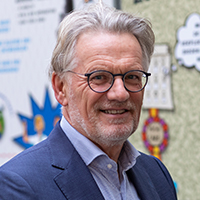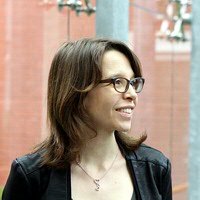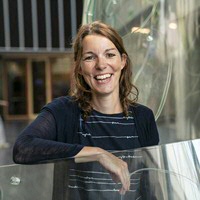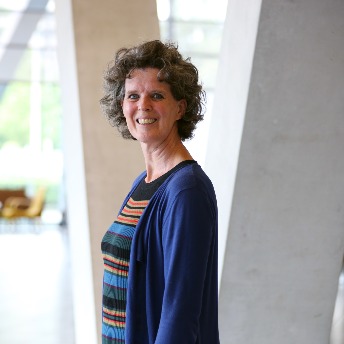Social Determinants
Han de Ruiter
As of April 1, 2019, I started as a professor in the research domain Value Based Health Care. In the ever-changing healthcare domain, we see that the value(s) of healthcare is becoming more important. That means value for the patient involved, his or her family and the social network. But also value for healthcare professionals. From our university of applied sciences perspective, this mainly concerns the nurses and para medical professions. On the one hand, we look at the care processes and the effective and efficient working method therein and efficient use of (financial) resources. On the other hand, we try to take the perspective of the patient as a starting point in our research. What does value-based care mean from the perspective of the patient, the family, the social network?
Extra keyword: Value Based Healthcare

Peter Meister Broekema
Peter Meister Broekema is senior researcher at the Hanze University of Applied Sciences and is also working on his dissertation at the Faculty of Spatial Sciences at the University of Groningen. In his research he is focusing on the relationship between co-creation and social innovation. By combining quantitative and qualitative research, he tries to disentangle the complex interactions between different types of partners in large multidisciplinary international projects. Besides that, he is also driven by a desire to ensure and stimulate the impact from research to society. At the moment he is working on a ZonMW funded project on Healthy Environments and three EU funded projects on the intersection between co-creation and social innovation.

Katherine Stroebe
Katherine Stroebe is professor in social psychology at the University of Groningen. She holds the chair ‘the Social Psychology of Justice and Resilience’. Katherine is also director of the expertise centre “Social Sciences, Health and Wellbeing” and is the coordinator of the “Resilience” track of the Aletta Jacobs School of Public Health. Since 2016, Katherine has headed a large-scale government funded research project into the psychosocial impact of the gas extraction in Groningen.
Katherine’s research focuses on people’s responses to individual and collective justice violations and the extent to which such responses enhance resilience rather than vulnerability. Collective justice violations, such as being discriminated against or being the victim of man-made earthquakes have always fascinated Katherine. Such violations can induce conflict-oriented behavior: protests, demonstrations and ultimately wars. Katherine is interested in what makes people abstain from conflict-oriented behavior - inducing behavior that may seem passive (but is not). Moreover, Katherine studies the long-term impact of experiences of (chronic) collective injustice on health and wellbeing, to better understand long term resilience in response to injustice, for example in the context of the gas extraction in Groningen.

Vera Heininga
Vera Heininga is an Assistant Professor Youth Studies. Her research draws together psychology, psychiatry, sociology, and pedagogy with the aim to unravel the psychosocial mechanisms of resilience in youth. Using an idiographic approach (i.e., diary studies), she investigates to what extent youth’s resilience - and the intergenerational transmission thereof - is shaped by contextual factors such as positive emotions, wellbeing and social relationships.

Jasperina Brouwer
Jasperina Brouwer, assistant professor, combines her educational background in social, health, and educational sciences with practical experience as a nurse in her research. Her research focuses on social mechanisms contributing to professional development and retention in nursing (funded by NWO Veni) and other professions (e.g., teachers or doctors). Proficient in both qualitative and quantitative research methods, her expertise lies in applying advanced (longitudinal) social network analysis techniques in student and professional networks. Employing a comprehensive mixed methods approach, she also delves into the impact of healthcare innovations, i.e. technological advancements combined with shifts in care delivery by formal and informal caregivers—on professional commitment, identity and development.

Jolanda Tuinstra
Jolanda Tuinstra was trained as a medical sociologist and obtained her PhD for a study into the health of young people and the influence of the social context in which they grow up. She then conducted various studies on, for example, 'quality of life', 'participation in everyday life' and 'evaluation of care'. When conducting research, she always seeks connections between researchers, students, teachers and practice. Preferably with the people where the question comes from. Since March 2020, Jolanda Tuinstra has been working as a lecturer in Social Quality at the NHL Stenden University of Applied Sciences, where she focuses on the quality of life of individuals and collectives, and the interaction between informal and formal relationships.

| Last modified: | 10 June 2024 12.50 p.m. |


